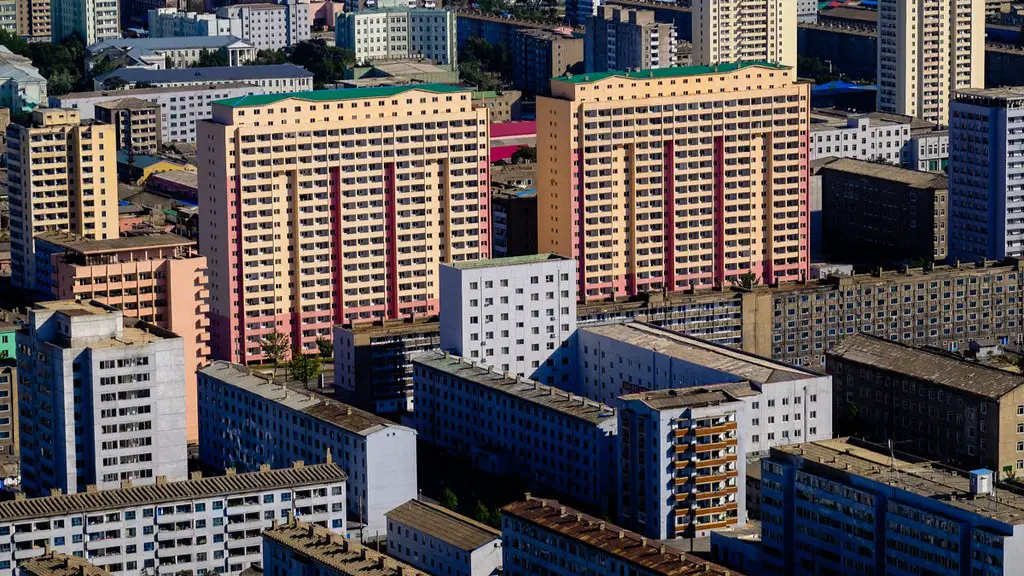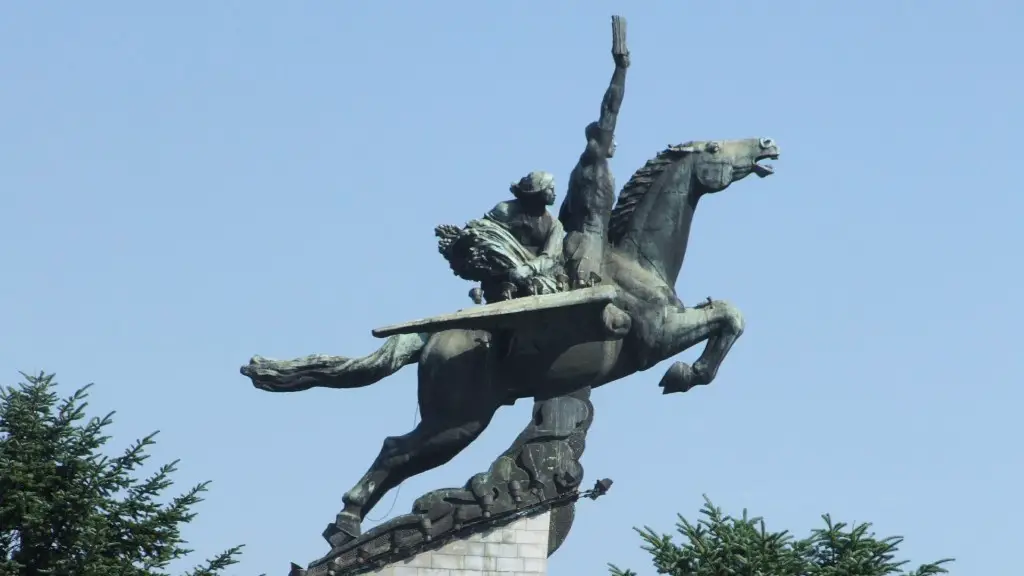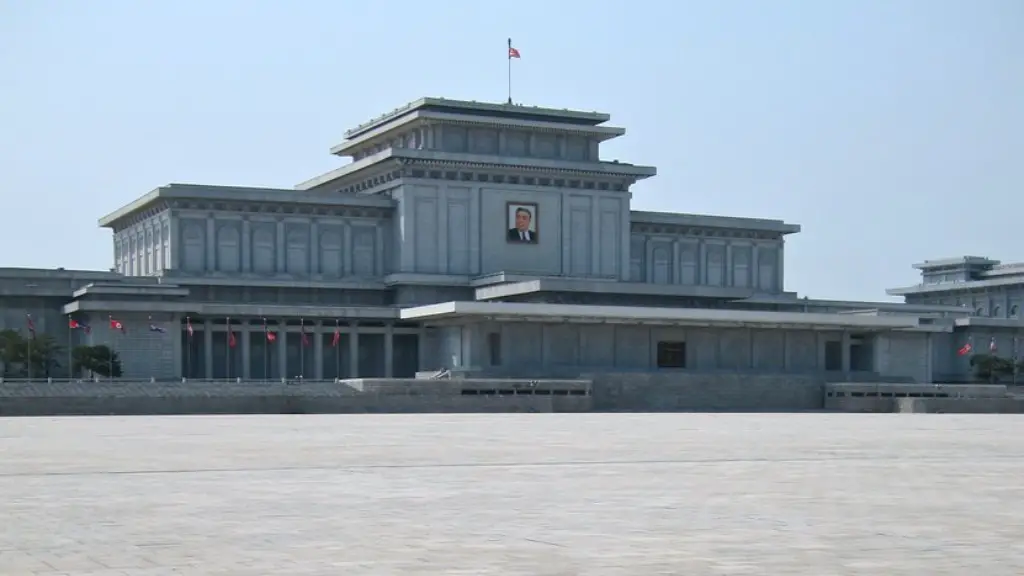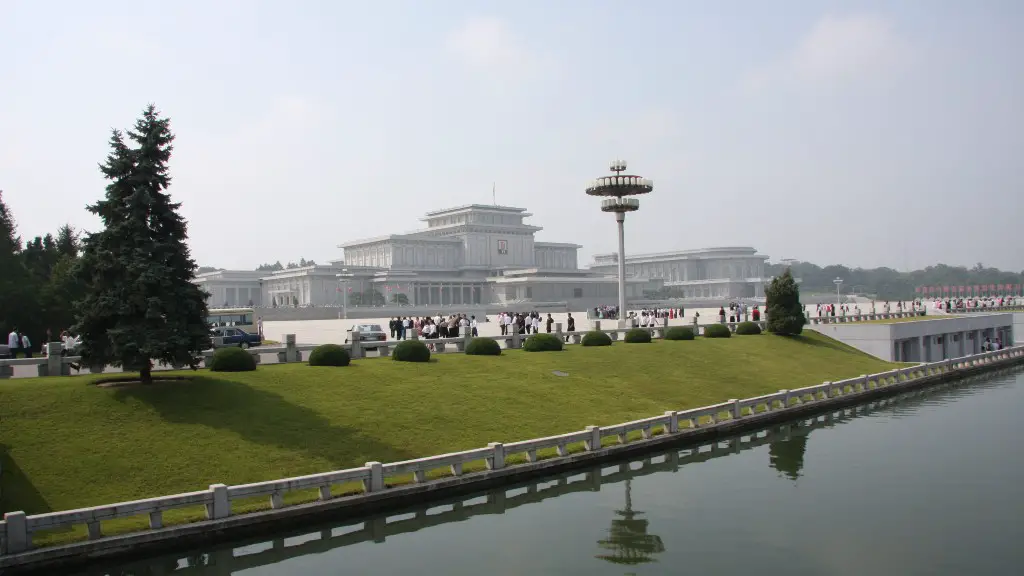The Korean War, fought between North Korea and the allied forces of the United States, South Korea, and others, started in 1950 and ended in 1953. It was a civil war that was heavily supported by China, which sent hundreds of thousands of its troops to fight alongside the North Koreans against the U.S. and its allies. As the Cold War swept through the global landscape, China saw a need to secure its place in the world as a major player. During the war, China provided essential military, financial, and material support to North Korea. It also provided a model of solidarity and resistance to the U.S. and its allies.
In terms of military support, China provided some of the most crucial assistance during the Korean War. China’s People’s Liberation Army (PLA) directly participated in the conflict, providing much-needed reinforcements for the North Korean Army. By 1953, China had deployed some 300,000 troops to North Korea, in addition to weapons and equipment such as artillery, tanks, and anti-aircraft guns. Without China’s support, North Korea would have been unable to continue its fight against the Allied forces.
Financial support was also crucial. To ensure that North Korea could continue fighting, China provided more than $800 million in direct economic and military aid. This allowed North Korean forces to continue fighting and provided them with the ammunition and supplies they needed. Additionally, China allowed North Korea to rent several of its airfields, ships, and other military assets, providing valuable resources to the war effort.
But China’s support went beyond just military and financial aid. China also provided a model of solidarity, encouraging other countries to join forces against the United States and its allies. This helped other countries see the virtue in unifying against a common enemy, as well as China’s own commitment to helping North Korea. As a result, many other countries, such as the Soviet Union and other socialist countries, began to provide military, economic, and diplomatic support for the North Korean cause.
The Chinese army was also able to play a strategic role, using guerrilla tactics and surprise strikes to repel the Allied forces and keep them from making gains. China provided advice on how to wage the war more effectively, as well as hope that North Korea would survive the conflict. This allowed the North Korean forces to remain engaged and fight with greater strength and confidence.
Finally, China provided a source of moral and emotional support for North Korean citizens. During the war, the Chinese authorities showed considerable respect and care for the North Korean people. China provided medical and psychological support to the civilians, in addition to offering asylum and refuge to thousands of North Korean refugees who fled the fighting. This gave North Korean citizens a sense of hope and helped them remain resilient in the face of a dire situation.
Role Of Chinese Soldiers In The War
China’s presence was also highly visible on the battlefield — its soldiers actively participated in the war and suffered significant losses. Over the course of the conflict, Chinese forces suffered some 200,000 casualties and more than 20,000 fatalities. This not only showed the world that China would stand by its allies in times of need but also made a significant contribution to the North Korean cause.
By the end of the war, it was clear that China had made a tremendous contribution to the North Korean fight. From direct military and financial aid to strategic advice, China provided an invaluable level of support to North Korea during the conflict. Its actions set an example for other countries struggling against the power of the United States, as well as providing a source of hope to North Korean citizens. Without China’s help, the outcome of the Korean War could have been drastically different.
China’s Legacy In The Korean War
The Korean War left a lasting impression on China and its people. In the decades since the war’s end, China has continually strived to promote peace and international security. During the war, it showed the world that it was willing to stand up for its allies and protect innocent civilians from the violence of conflict. This was a crucial lesson for a new nation looking to establish itself as a major player in global politics.
China also displayed considerable courage and determination in defending North Korea from the aggressors of the Allied forces. It showed that it was willing to take risks and make sacrifices in order to protect other nations from imperialist powers. This firmly established China as a leader in defending the international order, a role it has continued to play to this day.
Finally, the war showed China that it was capable of defending itself and its allies. Sweeping reforms were made after the war to strengthen its military and economy. This allowed China to rise to the level of power it holds today and become a major world player. It also made it clear that China was willing to use its power to protect itself, its allies, and the international order.
China’s Post War Policies Towards North Korea
Since the war, China has maintained its close ties with North Korea, helping the country confront its economic and political challenges. China has provided North Korea with various forms of aid, including food and energy, which have helped the country’s economy remain stable. China has also used its influence to help North Korea open up diplomatically, in the hopes of normalizing relations between the two countries.
Additionally, China has promoted peace and cooperation on the Korean Peninsula. It has been an influential voice in negotiations between North and South Korea, as well as a source of diplomatic guidance and advice. It continues to be a key player in maintaining peace between the two countries and working towards a lasting resolution of their issues.
Finally, China has been an important driver of North Korea’s economic development, providing money and resources for the country’s infrastructure and industries. It has also encouraged North Korea to embrace a more open and liberal economy, in the hopes of creating more economic opportunities for its citizens. By investing in North Korea, China has been able to play a positive role in the country’s ongoing development.
Challenges Facing China In Helping North Korea
Despite its efforts to help North Korea, China has faced several obstacles in fulfilling its objectives. Its economic and diplomatic advice has not always been welcomed by North Korean leaders, who have often been reluctant to change their ways. Additionally, China faces international pressure to limit its aid, which has limited its ability to help the country. In addition, sanctions imposed by the United Nations have made it difficult for China to provide full economic aid to North Korea.
China also faces criticism for perceived diplomatic inaction towards North Korea. It is often seen as softening its stance on North Korea’s nuclear weapons program, which has created tension between the two countries. This has led to questions about the efficacy of China’s policy towards North Korea, and criticism from the international community.
Finally, there is the question of how China’s aid has helped the North Korean people. There are deep suspicions about China’s role in propping up the North Korean regime, which is seen as oppressive and oppressive. This has led to criticism from human rights activists, who argue that China’s assistance has done little to help ordinary North Koreans lead better lives.
Drivers Of China’s Support For North Korea
Despite these challenges, China continues to provide aid to North Korea, motivated by a range of factors. China views North Korea as an important strategic ally, and it wants to ensure that the country remains stable and secure. This helps China maintain its influence on the Korean Peninsula, as well as protect its own security interests. Additionally, China sees North Korea as an important economic partner, and it wants to ensure that the countries have strong economic ties.
China also sees its aid to North Korea as a source of regional prestige and influence. By providing assistance to the North Korean people, China can improve its standing in the eyes of the international community, and demonstrate its commitment to protecting its allies. This sends a strong signal to other countries that China is a reliable partner and a force for positive change in the region.
Finally, there is an element of humanitarian compassion in China’s support for North Korea. China has a deep appreciation for the suffering of the North Korean people and recognizes the need for urgent aid. This has led China to provide the North Korean people with the resources they need to survive and rebuild, in the hopes of creating a brighter future for the region.
Conclusion
China’s support for North Korea during the Korean War was crucial and helped turn the tide of the conflict in favour of the North Korean forces. While the war was devastating for both sides, China’s support was invaluable in helping the North Korean people survive and resist the aggressors. Since then, China has continued to provide aid and support to North Korea, motivated by a range of factors. Despite the difficulties, China remains committed to helping the North Korean people and working towards lasting peace and stability on the Korean Peninsula.





